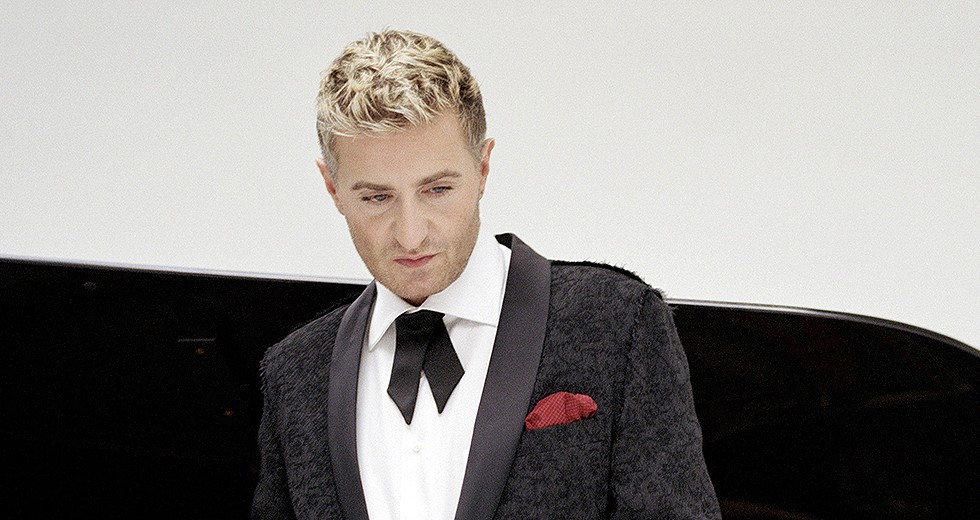
Jean-Yves Thibaudet is a man on a mission. Known for his championing of unusual repertoire, the French-born pianist moves into exotic territory again for his May engagement with the Chicago Symphony Orchestra.
As part of the Reveries and Passions Festival, Thibaudet will join the CSO and guest conductor Esa-Pekka Salonen in Ravel’s Concerto in G Major and Messiaen’s Turangalîla-symphonie for concerts May 21-23. “I’m looking forward to performing all this music with Esa-Pekka,” Thibaudet says. “For a pianist, the Turangalîla-symphonie by itself is huge, but then Esa-Pekka said he wanted me to play the Ravel, too! I asked him if he was crazy. I’m doing both pieces because he asked me. I don’t think I would do it if anyone else had. I resisted for a while – but then OK, OK, it’s part of this fantastic French festival, I’ll do it! I know it’s going to be incredibly exciting.”
Salonen was not the least bit crazy in asking Thibaudet to perform both the Messiaen and Ravel. After all, the pianist had studied with a student of Ravel’s, and he had more than a passing acquaintance with Messiaen.
“The Ravel is a special piece for me,” Thibaudet says. “It’s actually the first concerto I ever played. I was 11 and I had won a competition. The prize was a performance with an orchestra. I asked my teacher if I could play the Ravel Concerto, and she said, ‘No, no, no! You play Mozart or Mendelssohn.’ But I insisted on Ravel, and she finally agreed. ‘OK, learn the first movement for me by next week and we’ll see.’ I did and she let me play the Ravel. It’s been in my repertoire ever since.”
Thibaudet feels a personal connection to the composer. “My teacher, Lucette Descaves, was a student and friend of Ravel,” says Thibaudet, who was engaged to perform the composer’s Concerto for the Left Hand with the Los Angeles Philharmonic the weekend before his CSO appearances. “She had performed the concerto with him conducting. That’s such an amazing link. I always felt as though I knew Ravel. She would talk about him in the present tense, as if he were going to come through the door in the next second.”
Born 53 years ago in Lyon, France, Thibaudet recalls his parents as music lovers. Though they were not professional musicians, “music, though, was very much part of the house,” he says. “I had met her [Lucette Descaves] when I was 11 and I started studying privately with her. When I entered the Paris Conservatory a couple of years later, I went into her class, but she soon retired because of her advancing age. After that, I studied with her at her home. She was like a grandmother to me. We were very close — a remarkable lady. I was always seeing her in Paris and playing for her. That was an incredible privilege and that’s why I teach. I want to pass on all those traditions. There are no more people around who knew Ravel.”
Though the composer was not especially prolific, in terms of writing for the piano, “every piece is perfect,” Thibaudet says. “Playing any of them is like going into the most beautiful shop and looking at the most beautiful object. Through the years you change as a person, and interpretation evolves because of that. In general, though, I’d say my vision of the architecture, the skeleton of the concerto [in G Major], has stayed the same. But what’s remarkable about the concerto is that after all these years I never get tired of it. It’s one of those pieces I can play every night on a tour and every night I enjoy it. It’s really a magical piece.
The pianist also has a personal and long-standing connection to Messiaen. “I was privileged to know Messiaen very well — to study the Turangalîla-symphonie with him and his wife, [pianist] Yvonne Loriod,” he says. “Yvonne gave me her score with all the pedalings and markings, all the things that Messiaen wanted. This is a unique piece, and it takes a long time to learn and digest. I’ve been playing it for over 20 years — it’s gigantic in every way and the piano plays all the time. It’s almost an athletic event.
“For those who have not experienced the Messiaen, I suggest they read a little about it, so they understand what it represents. It’s an incredibly powerful, spiritual piece of music — beyond religion, beyond whether you’re Catholic or not Catholic or religious in any way. You just feel the power of the spirit in it. For me, learning and performing this piece has changed my life as a musician and as a person.”
Chicago-based writer Jack Zimmerman has authored a couple of novels, countless newspaper columns and was the 2012 recipient of the Helen Coburn Meier and Tim Meier Arts Achievement Award.